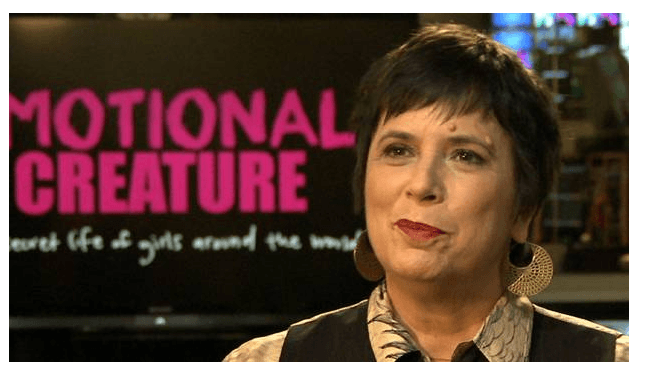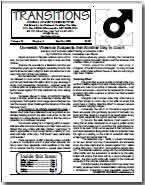 The 1 Billion Rising campaign has created a YouTube video called “Man Prayer,” with words by Eve Ensler and film by Tony Stroebel.
The 1 Billion Rising campaign has created a YouTube video called “Man Prayer,” with words by Eve Ensler and film by Tony Stroebel.
The video notes read as follows:
Violence against women hurts everyone, including men. We invite our brothers to take up this cause, and be free from the limiting strictures of our modern definition of masculinity! #MenRise
There are so many things wrong with this video and the 1 Billion Rising movement that it’s hard to know where to start.
Of course I support initiatives to reduce violence around the world and in our communities. In fact, much of my work for the past 10 years has been doing just that. I don’t however support initiatives that do this by stereotyping and stigmatising any group, be it based upon gender, religion, race, age, sexual preference, socioeconomic status or any other demographic category. And I don’t support initiatives that aren’t based upon the evidence.
The message I get from the video is that men, boys and masculinity are bad, wrong, broken, stupid, violent and domineering. A message like this only creates violence, it doesn’t reduce it.
Imagine a similar hypothetical video featuring girls and women saying “may I be a woman who is more rational and less emotional, who is a better partner who nags less, who pays my own way rather than being a gold digger” – and on and on using the worst stereotypes of women and girls. Now imagine that this hypothetical video was written by a man. How many women would accept it? The fact that the “Man Prayer” video was written by a woman, featuring the made-up ‘voices’ of men is deeply offensive.
The “Man Prayer” takes the worst stereotypes of men and masculinity that are held by a small percentage of men (and also a small percentage of women) and reinforces them, while painting the picture that females are free from the same and other vices.
The 1 Billion Rising campaign is based upon the “UN Statistic” that “one in three women on the planet is raped or beaten in her lifetime”. There is no data to back up this claim – believe me I’ve tried to find it. It’s true that arguably research shows that one in three women on the planet, on average, has experienced some form of violence in her lifetime. However most of these will have said ‘yes’ to a survey asking whether they have ever been pushed or slapped. A single slap can be a troubling experience, yes, but it is far from being beaten or raped. One in three based on this definition seems like a very low figure, over an entire lifetime, across the entire planet.
And if you ask the same questions of men about their experience of violence, twice as many men would say “yes” compared to women. Men experience violence – from other men and from women – at twice the rate that women do, and at much more severe levels. But there have been no high profile public campaigns or UN conventions about violence against men that I’m aware of.
Yes, women (and men) are violently raped and beaten far too often – a single victim is one too many – but the way to reduce this violence is to fight against ALL violence, wholly and inclusively, against all people, male or female, white or black, muslim or christian or atheist, old or young, straight or gay, rich or poor. And to do so in a way that doesn’t attack or stereotype any other group. And to not promote misinformation in the process.
One of the greatest ironies of the “man prayer” is that it calls on men to create space rather than dominate it. The entire discourse on gender and violence has been dominated by the “violence against women” perspective for many years now, creating no space for men and women to work together to end all violence.
Yes, some of the positive messages from the video are great – men should be able to express themselves free from the constraints of masculinity (as should women, free from the constraints of femininity). But let’s send these messages without the negative stereotypes please.
Much of my other work for the past 10 years has been working to change the social, legal and cultural structures that constrain men. The difference between the “man prayer” and the work of my colleagues and I is that we don’t blame and shame individual men or masculinity (or individual women or femininity) for the way they are shaped by social norms and structures. We work to change those structures – whether it is the lack of family-friendly workplace provisions and cultures for fathers who want to play a bigger part in their children’s lives, the lack of services for men and their children who want to escape abusive relationships, the lack of male-friendly health services, or the education system that is anything but boy-friendly.
Men are giving, we are both vulnerable and strong, we do listen as well as knowing, weare kind, we like to be in control of our lives, we cry, we do refuse violence, we touch as well as performing, we cherish our experiences as well as getting there, we take our time but we move fast when it is necessary, we share our fears and our shame with those close to us, we cherish, respect and love both our parents (not just our mothers), and we love women, children, and all living things – including (gasp!) men – just as women do. And sometimes we fuck up – just like women do. We are as deeply and richly human as women are.
If we want men and boys to be the best they can be, we don’t need “man prayers,” we need services and practical support for males on the ground where it matters.
Greg Andresen
Editor
1 Billion Rising
1 Billion Rising
1 Billion Rising
I Billion Rising
NOT



